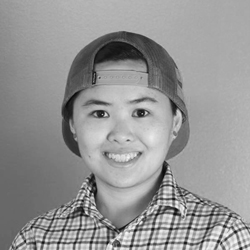
Week 3
13 Sep 2015
First project was due this week, and unlike my first Downing project in SWE two years ago, I remembered to do the google doc. I think one take away I’ve learned from this first project, from some piazza posts, and talking to friends, is that you NEED to get comfortable with Git. Not just for any of Professor Downings classes or any other school project you’ll work on, but for when you get internships or when you get a full time job. Watch tutorials if you have to. Code School has a pretty good git tutorial. Only their basic Git course is free, but you can try searching the web for some free trial codes to access all of their content (I would share mine but I have since lost it somewhere in the depths of my inbox). Another helpful hint for Professor Downing’s class is to make sure you have everything submitted and follow ALL the instructions to a T. One of the requirements we had was to have a file of one hundred acceptance tests, and there were quite a few people who had numbers that weren’t in the range we were suppose to test as well as numbers that overflowed an int. For one, this made testing other peoples acceptance test difficult. Two, I hope those people fixed them before the due date because they probably lost some points for something so simple. Now talking about lecture this week, one thing I really like about Professor Downing’s class is that he brings alumni to talk to us about the company they work for. On Monday, we had a guest speaker from Bloomberg and he just talked to us about the company and about recruitment. He told us ways to make ourselves more marketable to recruiters and to make our resume better. He mentioned stuff like proofreading and having someone else proofread our resume, put projects, even class projects on there, and to contribute to open source projects if we can.
Tip Of The Week: Never give up. (For students looking for their first internship)
I’ve already talked about this in a personal blog post (not one for this class), but I wrote it after I accepted my the offer for my first internship. But a tl;dr of it is to keep applying. Apply, apply, apply to as many companies. Your first internship will be the hardest to get and it may not be your first choice company but any experience now will help you get what you want in the future. Work on projects, as our guest speaker said, list class projects if you don’t have any personal one. I think that was the biggest factor that helped me get my internship. I didn’t have any internship experience but I had listed quite a few final class projects, as we as I had continued working on a few of them.